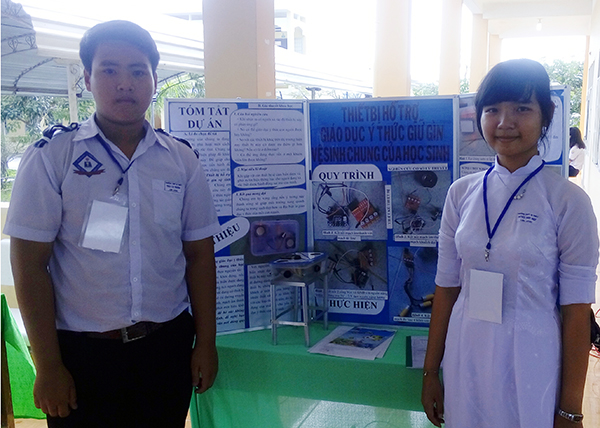Rubbish detecting device invented by two high school students
PSNews - Thuong and Diep hoped that this device will raise people’s, especially students’, awareness of keeping the environment and surroundings clean.
- Vietnamese student wins third prize at int’l piano contest
- Vietnamese short film wins award in Singapore
- Documentary and Experimental Film Festival
Two students of Vi Thuy high school, who started a research idea to raise students’ awareness of keeping school environment clean, have successfully invented a rubbish detecting device.
Tran Van Thuong and Nguyen Ngoc Diep are the two students in class 11TN2 of Vi Thuy high school, Vi Thuy district, Hau Giang province.
 |
| Tran Van Thuong and Nguyen Ngoc Diep |
According to Thuong and Diep, during the research process, they often asked themselves: How will the device work? Will it possible to operate in large campus? What advantages will it have to better the existing devices?
To answer the above questions, Thuong and Diep had to research information on the internet and sought supports from teachers at the school.
If the sensor bar detects waste, it will speak out: "You have left waste in the wrong place, please put waste in the right place." It costs about VND 400,000 to make a completed device.
Diep told the reporter: “The rubbish detecting device is small and can be placed anywhere, such as in the class or in the school campus. After pilot operations, the device has brought about positive results.
Sharing about disadvantages of the device, Thuong said: " The rubbish detecting device still has problems with rain. In addition, the sensor line still cannot clearly distinguish between temperature of human body and other items. Therefore, it can generate wrong signals sometimes. We are further working on it to improve its sensor line so as to minimize existing problems and help the device work more effectively.

